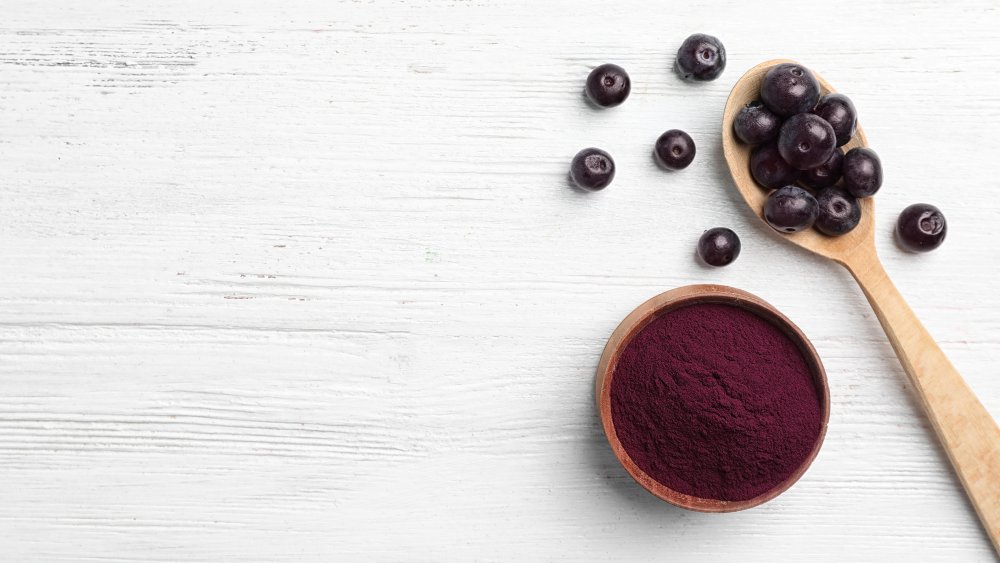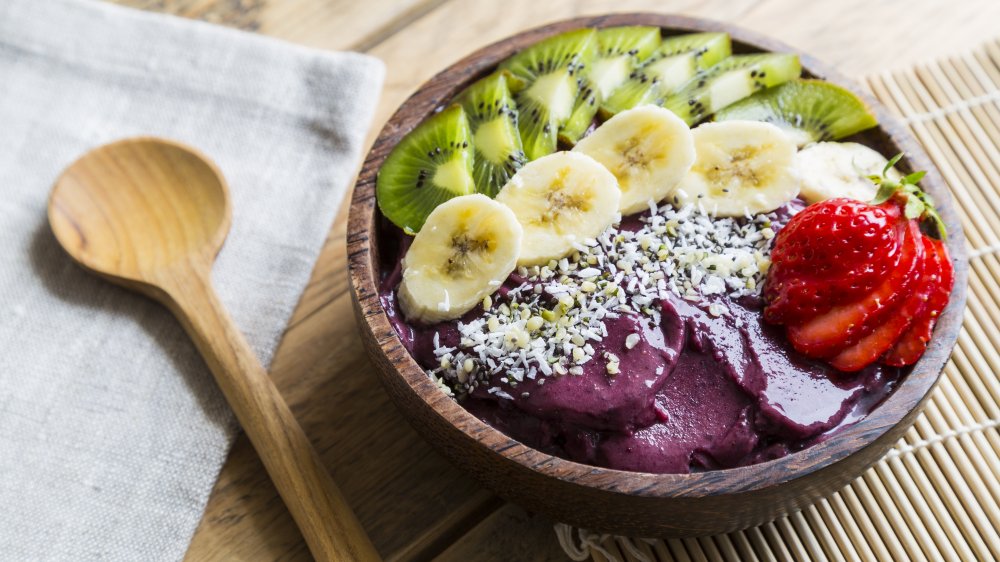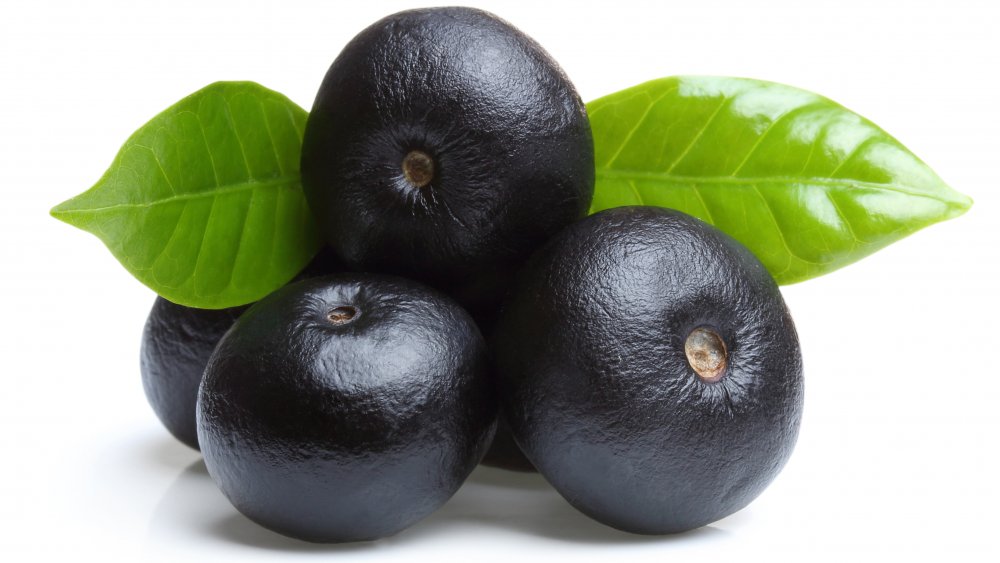The Surprising Things Acai Berries Do For Your Body
We know them best as the purple-colored additions that add zing to our smoothie drinks and bowls. Açaí may be a fairly new (and trendy) addition to our diets, but they've been a staple among Brazil's indigenous peoples for generations now (via Vogue). Thanks to their short shelf life, the berries usually come to us as pills, powders, and juices, but when they are harvested from the açaí palm trees, they are round fruits that measure about an inch, and have dark purple skin and yellow flesh. Because they have tough skins, you have to work to eat fresh açaí by first soaking the fruit and then mashing it until it becomes a paste. Your reward? A dark-colored fruit puree that tastes a bit like berry with unsweetened cocoa added in that could have some serious health benefits (via Healthline).
Acai packs a nutritious punch
A breakdown of açaí's nutritional content shows that 100 grams of frozen pulp come with 70 calories, 5 grams of fat, 4 grams of carbs, 2 grams of sugar, 2 grams of fiber, along with some vitamin A and calcium. A Venezuelan study shows berries also contain minerals including chromium, zinc, iron, copper, manganese, magnesium, potassium, and phosphorous. But the açaí is especially valuable because it is packed with antioxidants — even more so than strawberries, blueberries, and cranberries, which helps protect our bodies against free radicals that are linked to diseases such as diabetes and cancer (via The Chopra Center).
Consuming regular doses of a nutrient-dense fruit like açaí means your body gets to reap the benefits of consuming a superfood that has the potential to lower cholesterol levels; açaí is rich in anthocyanins, which can play a role in benefiting LDL (bad cholesterol) and HDL (good cholesterol). Açaí was shown to improve both lipid profiles and cholesterol numbers when used in animal studies, which means further testing could show that the berry will end up being just as beneficial for humans, too.
The benefits and drawbacks of acai
Açaí isn't just good for the body — it's also good for the brain. Healthline says animal testing using açaí shows that its antioxidants are able to support the brain as it carries out a critical housekeeping function known as autophagy. This process, which sees the brain cleaning up cells that are either toxic or not working, helps enhance communication between cells. As we age, autophagy doesn't work as efficiently as it did, and açaí seems to be able to reverse this problem, at least in aging rats.
While initial research on açaí indicates that it could be a miracle fruit, it's important to remember that the fruit and its positive effects on the human body has not been thoroughly researched, which means many health claims linked to açaí need to be taken with a grain of salt. Açaí purees can also have a lot of added sugar, making excessive consumption a problem for those who suffer from insulin-related issues.


